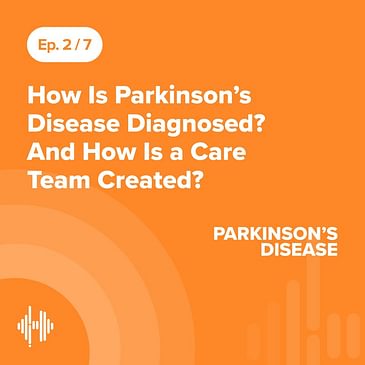Parkinson’s disease can’t be diagnosed through a simple blood test or scan. After a referral from a primary care doctor, it often takes visits to a neurologist or movement disorder specialist before receiving a clinical diagnosis.
In this episode, we speak to healthcare providers and those living with the disease about the diagnostic process. We also explain how to build a Parkinson’s care team - a group of healthcare providers that provide support after diagnosis.
For more links and resources, visit our website at HealthUnmuted.com
Resources
Building a care team
- Movement disorder specialist directory - International Parkinson’s and Movement Disorder Society
- Find a PD expert care center - Parkinson’s Foundation
- Building a care team - Michael J Fox Foundation
Support after diagnosis
- Early signs of PD- Brain and Life Magazine (AAN)
- Guide to the early years after diagnosis - Michael J Fox Foundation
Terms Mentioned
- DaTscan - test to help in the diagnosis of Parkinson’s, read more on APDA
Podcast
Community Group
Get all the links and the episode transcript by visiting the website here.
This episode is made possible with support from Altoida and LSVT Global.
What did you think of this episode? We’d love to hear from you. Please visit healthunmuted.com/feedback to let us know!








